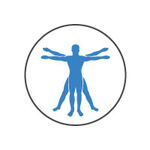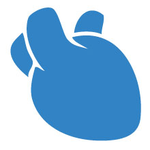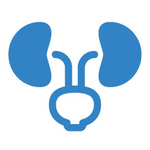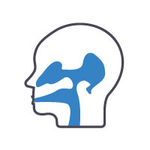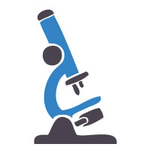What is Ayurveda
Ayurveda is a Sanskrit word, which, when translated, means “the Science of life”. There are numerous courses taught in Ayurveda which cover all the therapies and practices to treat patients seeking Ayurvedic treatment for mental and physical health. The Ayurveda course includes the comprehensive study of the history of Ayurveda and its relevance in modern times. Ayurveda helps in preventing and curing any kind of illness by eliminating its root cause.
In the Ayurveda course, practitioners learn about eight ways of diagnosing illness and a way of channelising the five senses to diagnose the root cause. The Ayurveda course includes various plant-based treatments and how they are derived from leaves, roots, barks, seeds and fruits. One can take Ayurveda courses at undergraduate and postgraduate levels.
Ayurveda Courses- Highlights
| Particulars | Values |
|---|---|
| Field | Study of traditional Indian medicine focusing on holistic health, herbal remedies, body constitution (doshas), and natural healing. |
| Popular Undergraduate Courses | BAMS (Bachelor of Ayurvedic Medicine and Surgery) |
| Popular Postgraduate Courses | MD/MS in Ayurveda, MBA in Ayurveda Hospital Management |
| Diploma/Certificate Courses | Diploma in Ayurvedic Pharmacy, Certificate in Panchakarma Therapy, PG Diploma in Ayurvedic Dietetics, Ayurvedic Nursing, Beauty Therapy |
| Eligibility Criteria | UG – 10+2 with Science (PCB), minimum 50% marks PG – BAMS degree with qualifying marks, internship Diploma/Certificate – 10th or 12th pass |
| Admission Process | UG & PG – Entrance-based Diploma/Certificate – Direct admission or merit-based |
| Entrance Exams | UG – NEET PG – AIAPGET (All India AYUSH Post Graduate Entrance Test) University-level entrance exams for some diploma/PG courses |
| Career Options | Ayurvedic Doctor, Panchakarma Specialist, Ayurvedic Pharmacist, Researcher, Wellness Consultant, Ayurvedic Dietician, Lecturer |
| Top Recruiters | Government Ayurvedic Hospitals, Patanjali, Dabur, Baidyanath, Himalaya, AYUSH Ministry, Wellness Clinics, Research Institutes, Ayurvedic Colleges |
Specialisations & Similar Degrees in Ayurveda
| B.Sc. in Yoga and Naturopathy | PG Diploma in Dietetics |
| BNYS (Bachelor of Naturopathy and Yogic Sciences) | Diploma in Ayurvedic Nursing |
| MBA in Ayurveda Hospital Management | Certificate in Ayurvedic Beauty Therapy |
| Certificate in Panchakarma | MD in Kayachikitsa (General Medicine) |
| MD in Panchakarma | MD in Rasashastra & Bhaishajya Kalpana |
Top Ayurveda Colleges in India
| Colleges | Fees |
|---|---|
| Rs. 1.37 Lakhs | |
| Rs. 1.24 Lakhs | |
| Rs. 1.24 Lakhs | |
| Rs. 3 Lakhs | |
| Rs. 11.34 Lakhs | |
| - | |
| Sambalpur University, Sambalpur | - |
| JNU Delhi | - |
| Swami Vivekanand University, Sagar | - |
| Ayurved Mahavidyalaya Sion Mumbai | - |
Top Private Ayurveda Colleges in India
| Colleges | Fees |
|---|---|
| Rs. 18.30 Lakhs | |
| Rs. 3.08 Lakhs | |
| Rs. 1.69 Lakhs | |
| Rs. 15,000 | |
| Rs. 2.81 Lakhs | |
| Rs. 60,000 | |
| Rs. 2.92 Lakhs | |
| Shridhar University, Pilani | - |
| Dr DY Patil University, Navi Mumbai | - |
| YBN University, Ranchi | - |
Top Government Ayurveda Colleges in India
| Colleges | Fees |
|---|---|
| Rs. 69,400 | |
| Rs. 30,000 | |
| Rs. 14.59 Lakhs | |
| Rs. 9.68 Lakhs | |
| Rs. 30,000 | |
Pt Deendayal Upadhyay Memorial Health Sciences and Ayush University of Chhattisgarh, Raipur | Rs. 6.74 Lakhs |
| Gopabandhu Ayurveda Mahavidyalaya, Puri | - |
| Jadavpur University, Kolkata | - |
| Sree Sankaracharya University of Sanskrit, Kalady | - |
| Dr Sarvepalli Radhakrishnan Rajasthan Ayurved University, Jodhpur | - |
Eligibility Criteria (UG & PG) of Ayurveda
Ayurveda, one of the world’s oldest holistic healing systems, is gaining renewed importance for its natural and preventive approach to health and wellness. Each course has its own eligibility criteria, entrance requirements, and academic focus depending on the level and specialisation. Mentioned below is the eligibility criteria for admission to the undergraduate or postgraduate level of Ayurveda course:
| Course Level | Eligibility Criteria |
|---|---|
| Undergraduate (UG) | - 10+2 with Physics, Chemistry, Biology (PCB) - Minimum 50% aggregate marks (may vary by institute) - Must qualify NEET-UG |
| Postgraduate (PG) | - BAMS degree from a recognised institution - Completion of 1-year internship - Qualify AIAPGET (All India Ayush Post Graduate Entrance Test) |
| Doctoral | - MD/MS (Ayurveda) or equivalent PG degree - Entrance test + Interview by university/institution - A research proposal may be required |
| Diploma / Certificate Courses | - Minimum 10th or 10+2 (depending on course) - Science background preferred for technical diplomas - Direct admission or merit-based |
Entrance Exams for Ayurveda Courses in India
| Exam Name | Conducting Body | Exam PAttern |
|---|---|---|
| NEET-UG | National Testing Agency (NTA) | NEET-UG Exam Pattern |
| AIAPGET | National Testing Agency (NTA) | AIAPGET Exam Pattern |
| University/Institute-level Entrance Test | - |
College Predictors VIEW ALL
Scope of Ayurveda in India and Abroad
On completing ayurveda course, many ayurveda clinics demand for good ayurveda doctors who are good at administering steam therapies, oil messaging, meditation and exercise. Also, after completing ayurveda course one can opt for teaching Ayurveda subjects in colleges. Many can opt to start their private practice or get hired to pharma companies. Some of the areas where employment can be sought are:
- Specialised clinics
- Private clinics
- Hospitals
- Government sector
- Corporate Research Units
- Pharmaceutical companies
- Ayurvedic Pharmacies
- Healthcare Administration Centres
Course Fees Ayurveda
| Minimum Fees | Maximum Fees | |||
|---|---|---|---|---|
| Private | Government | Private | Government | |
| UG | ||||
| PG | ||||
| DOCTORAL | ||||
| DIPLOMA | ||||
Course Subjects
The ayurveda courses include the subjects to have sound knowledge of Ayurvedic principles and to meet the demand of skilled experts. After studying the subjects at following levels the practitioner must be capable of producing standard and cost-effective ayurvedic medicines.
Let us have a look at the subjects taught at different levels
Syllabus of Bachelor of Pharma (Ayurveda) Course
First Year
Rasa Shastra and Bhaishajya Kalpana – 1 | Pharmaceutical Biology |
| Dravyaguna Vijnana – 1 | Anatomy and Physiology |
Ayurveda Sharir Kriya Evam Rachana Vigyana | Sanskrit |
| Pharmaceutical Chemistry (Inorganic and Organic) | Fundamentals of Ayurveda including Swastha vritta |
Second Year
| Rasa Shastra and Bhaishajya Kalpana – II | Pharmaceutical Biochemical Analysis of Ayurvedic Drugs -I |
| Dravyaguna Vijnana - II | Pharmaceutical Technology of Ayurvedic Drugs - I |
Dosha, Dhatu, Mala Vijnana | Pharmaceutics - Physical Pharmacy |
| Pharmacognosy of Ayurvedic Drugs – I | - |
Third Year
| Rasa Shastra and Bhaishajya Kalpana - III | Pharmaceutical Technology for Ayurvedic Drugs –II |
| Dravyaguna Vijnana - III | Pharmaceutical Engineering |
| Pharmacognosy of Ayurvedic Drugs - II | Pharmacology & Toxicology of Ayurvedic Drugs –I |
| Pharmaceutical Analysis of Ayurvedic Drugs - II | - |
Fourth year
Rasa Shastra and Bhaishajya Kalpana-IV | Pharmaceutical Microbiology |
Pharmaceutical Analysis of Ayurvedic Drugs-III | Pharmacology & Toxicology of Ayurvedic Drugs - II |
| Pharmaceutical Technology for Ayurvedic Drugs-III | Forensic Pharmacy Acts, Rules & Regulations & Pharmaceutical Management |
Syllabus for Post-Graduate Course in Ayurveda
Paper 1- Research Methodology and Biostatistics
Part A- Research Methodology
Part B- Medical Statistics
Practicals
Paper 2- Concern Subject:
Syllabus for Post-Graduate Diploma Course in Ayurveda
Ayurveda, one of the world’s oldest holistic healing systems, is gaining renewed importance for its natural and preventive approach to health and wellness. Academic Students can attain speciality in any of the following:
| Ayurvedic Pharmaceutics | Prasuti and Striroga |
Ayurvedic Dietetics | Panchkarma |
Balroga | Ayurvedic Cosmetology and Skin |
Manasik Swasthya Vigyan | Swasthavritta and Yoga |
| Netra Roga Vigyan | Dravyaguna |
Kshar-Karma | Ayurvedic Sangyaharan |
Rog Nidan Vidhi | Chhaya evam Vikiran Vigyan |
Also Read: Ayurveda Certification Courses
Careers in Ayurveda
Earlier, after completing the ayurveda course the only option that a person was left with was starting one’s own practice. However, with change in time, today one has many promising career opportunities available. While selecting the career students must know his/her area of interest and pursue accordingly. Some of the career opportunities are:
- Clinical practice
- Academic
- Management and Administration
- Drug Manufacturing
- Research
- Teacher
Clinical practice
Students who have completed ayurveda course must know in detail about Ayurvedic Samhitas.Student must be well versed with modern medical science. Students can opt for specialized practice for instance, therapy of spinal disorder, skin diseases, ano-rectal diseases, ophthalmologic conditions, and so forth. In such therapies, Ayurveda has a crucial role to play.
Also as per Indian traditions students can opt for Ayurvedic practices like Nadi Pariksha, Panchbautik Chikitsa, Dhatu Chikitsa and so forth. Also one can indulge in various therapies like Panchkarma, Ayurvedic dietetics, Physiotherapist, Yoga and etc.
Academics
One must have completed his/her post graduation in Ayurveda to pursue a career in Academics. Students after completing the post graduation or diploma course can join government or private colleges as lecturers and demonstrators. Students can opt for tuition classes for Ayurveda courses.
Management and Administration
Students who don't have interest in medical practice however want to be related to medical fields that can opt for courses like sports medicine, industrial management, preventive and promotive health care and so forth and can enter government sector as administrator.
Drug Manufacturing
Production of Ayurvedic medicine is booming business in today’s life. Trading raw materials, cultivation of medicinal plants in the form of oil, powder and other cosmetics are in huge demand. Also, many Ayurvedic food products have equal demand in the market. In this time of need students who have completed ayurvedic course can utilize their knowledge and skills in producing ayurvedic medicines.
Research
Students opting for various courses in Ayurveda apart from MD and PhD can have great careers in research. On completion of the course students can get jobs as Clinical Research Associate in pharmaceutical companies and research units.
Lecturer/Professor
To become a Ayurveda teacher and build a career in this field, students must complete their post graduation in MD or diploma in any subject as per their interest. Students who have completed their post-graduation can apply for the position of teacher in schools or colleges.
Other Career Options
Other than the above-mentioned career options students can opt for the following options as well:
- Medical tourism
- Medical event management
- Medical transcription
- Medical journalism
- Medical documentation or photography
- Legal medical advisor.
- Laboratories
- Private super speciality hospitals
Upcoming trends
Ayurveda, India’s ancient system of holistic medicine, emphasises natural healing, balance in body systems, herbal treatments, and lifestyle practices. With the increasing global interest in wellness, integrative healthcare, and traditional medicine, Ayurveda has gained significant academic and professional relevance. This complements the complete overview of Ayurveda courses and provides insight into where the field is headed:
- Integration with Modern Medicine
- Digital Ayurveda & Teleconsultation
- Globalisation of Ayurveda
- Evidence-Based Research
- Personalised Ayurveda (Prakriti-based Treatment)
- Rise of AyurTech Startups
Job Profiles and Top Recruiters
Students after completing their Ayurveda course can opt for various career opportunities and can work along with top recruiters to gain relevant experience and practice. Some of the job profiles that one can opt for after completing the Ayurveda courses are:
- Therapist
- Pharmacist
- Medical representative
- Ayurvedic doctor
- Assistant claim manager health
- Jr. Clinical trial coordinator
- Lecturer
Top Recruiters
- Healthcare communities
- Healthcare IT
- Nursing home
- Panchakarma ashram
- Government/private hospitals
- Dispensaries
- Research institutes
- Spa resort
- Pharmaceuticals companies
- Life science industry
Average Salary
The salary after completing ayurveda course varies depending upon the role opted by the practitioner. The salary after completing ayurveda course ranges between Rs 20,000 per month to INR 50,000 per month. However, it differs from role to role. The salary for post graduates is comparatively higher, their stipend ranges between Rs 40,000 to 50,000 per month.
Popular Online Medicine Courses and Certifications
Required Skillset for Ayurveda
Ayurveda courses can be opted by students who have keen interest in medicinal treatment and learning. Students aspiring to pursue Ayurveda course must consist of the following skill sets or develop the same by the end of the course:
- Decision-making ability
- Empathy
- Observation
- Interest in the medicinal properties of herbs
- Patience
- Counselling skills
- Concentration
Course Curriculum for Ayurveda
A variety of undergraduate, postgraduate, diploma, and certificate courses are available, offering both theoretical knowledge and practical training in Ayurvedic principles, therapies, and healthcare delivery. Here is a curriculum of Ayurveda Courses in India, covering all the aspects-
Course Curriculum for BAMS
BAMS course is a 5.5-year program, wherein 4.5 years are academic studies and the last year is an internship. Each academic year is divided into 1.5 years. Check the curriculum of BAMS year-wise.
First professional course
- History of the Ayurvedic system
- Basic principles of Ayurveda
- Anatomy
- Physiology
Second professional course
- Toxicology
- Pharmacology
- Ayurvedic Pharmaceutical Science
Third and final professional course
- Modern anatomy
- Principle of surgery
- ENT
- Skin
- Obstetrics
- Gynaecology
- Pediatrics
- Internal Medicine
Course Curriculum for Post-Graduate Programme
Paper 1- Research Methodology and Biostatistics
Paper 2- Concern Subject
Popular Ayurveda Entrance Exams in India
Frequently Asked Questions (FAQs)
Question: What are the career options after completing Ayurveda course?
Answer :
After completing Ayurveda course, students can opt for the following career options like clinical practice, academic, management and administration, drug manufacturing, research and teacher.
Question: What is the duration of the various Ayurveda courses?
Answer :
The duration of the various Ayurveda courses- UG program- 5.5 years and PG program- 3 years
Question: What is the approximate fee for the Ayurveda course?
Answer :
The range of tuition fee for Ayurveda course varies from Rs. 10,000 to Rs. 1,00,000 per annum.
Question: Which are the top recruiters after completing Ayureda course?
Answer :
Some of the top recruiters for Ayurveda course graduates are Baidyanath,Patanjali Ayurved Limited, Surya Herbal Limited, The Himalaya Drug Limites, Zandu Pharmaceuticals Works Limited to name a few.
Question: What are the basic skill sets required for Ayurveda course?
Answer :
To pursue Ayurveda course students must have the following skill sets like decision making ability, empathy, observation, interest in medicinal property of herbs, patience, counselling skills and concentration.
Question: What is eligibility criteria to pursue BAMS course?
Answer :
Students must have completed class 12th with Science stream (Physics, Biology and Chemistry subjects) along with securing minimum of 50 to 60% in aggregate marks from recognized board/institute.
Questions related to Ayurveda
hey! between BAMS and B pharmacy which is more beneficial career option considering higher studies in both professions PG after BAMS and masters after b pharmacy. To be honest I dont really know if i can develop interest in ayurveda but about pharmacy its not i like to the core. Im really baffled
Hello Sharavani N,
BAMS and B Pharmacy are great degrees in itself, where one is more focused on ayurvedic medicine and the other is based on allopathic medicine.
To compare both the degrees considering all important points, i'll provide you with the links that thoroughly layout both the degrees for
I have done BAMS and now Im looking for pg diploma courses suitable for ayurveda practice without AIAPGT exam or any other entrance test. Can you find me such courses and colleges offering those course
Hello Vaishnavi Mahajan,
There are no colleges that offer ayurveda diploma after BAMS without AIAPGET exam. You can apply to different colleges after qualifying AIAPGET. I will provide you with the links for different colleges, duration, eligibility, fees and scope.
Hope it helps!
https://www.careers360.com/courses/articles/diploma-courses-after-bams
https://medicine.careers360.com/colleges/list-of-pgd-in-ayurveda-colleges-in-india
i have applied in uttar pradesh state ayush counselling with 390 marks in general category with domecile of UP and female category, i dont get any govt ayush college, with round 1 round counselling result, should I wait and apply for the mop up round or opt for private college in uttarkhand ayurveda college.
Hello dear candidate,
With 390 marks in UP state AYUSH counselling with general category and did not get seat in round 1, you can wait for Mop-up round but chances of getting seat is very low or either you can get a private college immediately if you want to start
I got 229 in neet 2025 I applied tn Ayush only and my community rank is 126 and I also have 7.5 so my community rank is 50 through 7.5 my community is sca will I get a seat from government siddha, Ayurveda, Homeopathy college in tamilnadu or self finance under government quota in Tamilnadu for siddh
Hey! With a NEET 2025 score of 229 and a community rank of 126 (or 50 with your 7.5% reservation in SC(A)), getting a government seat in Siddha, Ayurveda, or Homeopathy in Tamil Nadu is unlikely. Government quota seats usually need higher scores, so it might be difficult.
However, your
I am mbc category and 447 mark in neet 2025 will I get government ayush college in tamilnadu like which one I will get ayurveda siddha homeopathy and all and will I get it in 1st round
With 447 marks (MBC category) in NEET 2025, you qualify for AYUSH courses in Tamil Nadu. Government Ayurveda and Siddha seats usually need 480+ in 1st round, so your chance there is lower. But you may get Homeopathy or Unani in later rounds if seats remain. Keep options open in



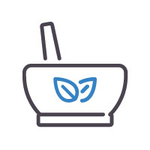

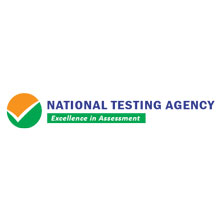


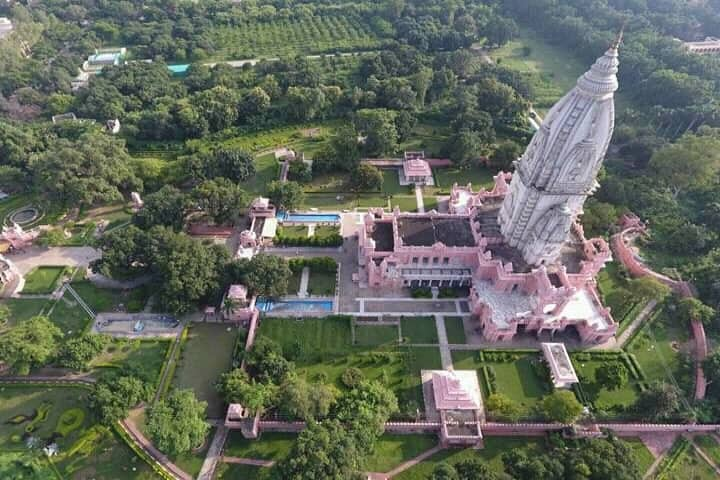
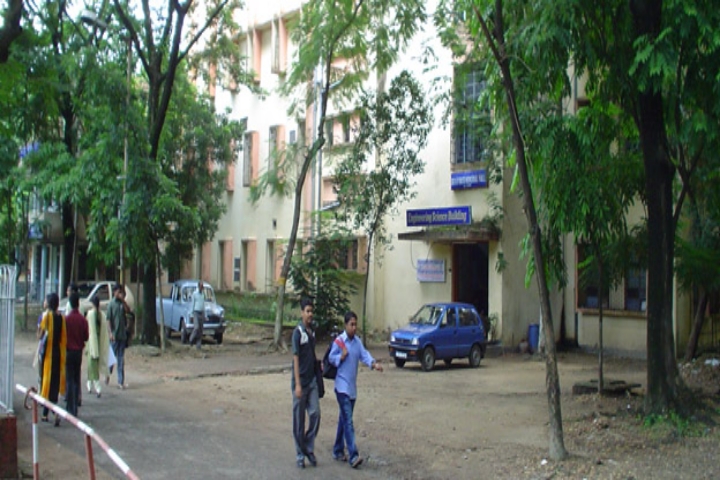
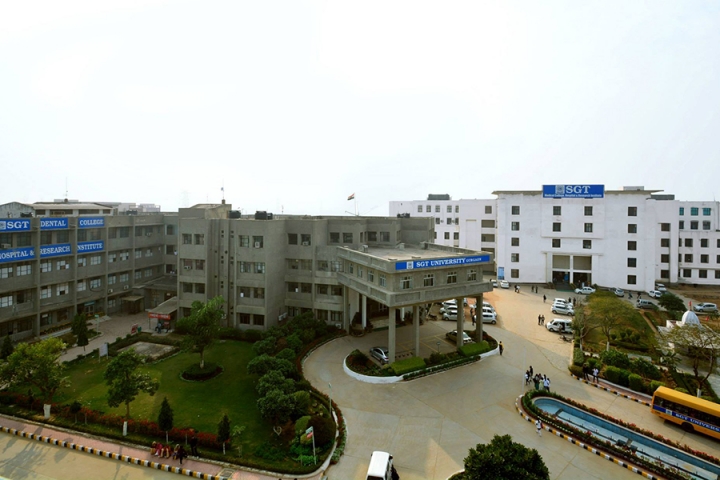

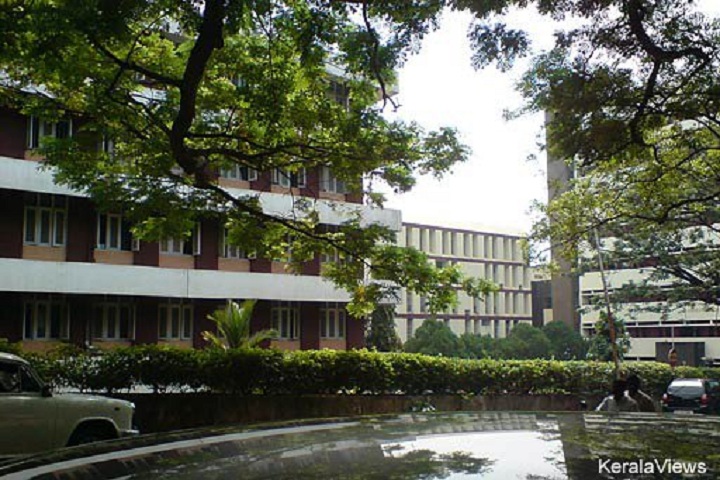
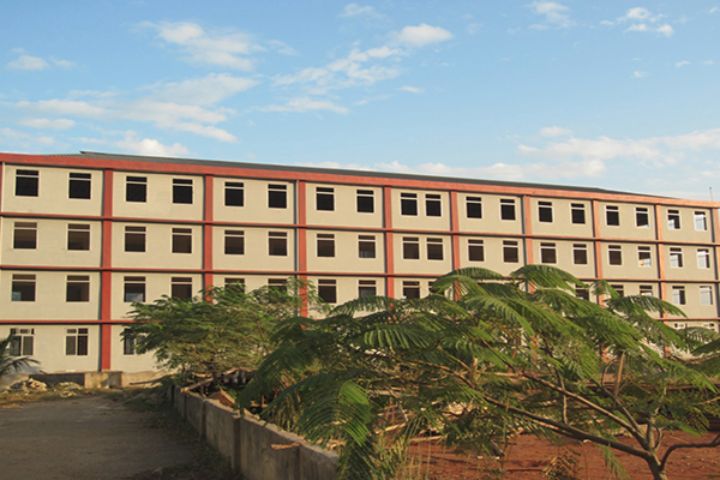

 Answer later
Answer later
